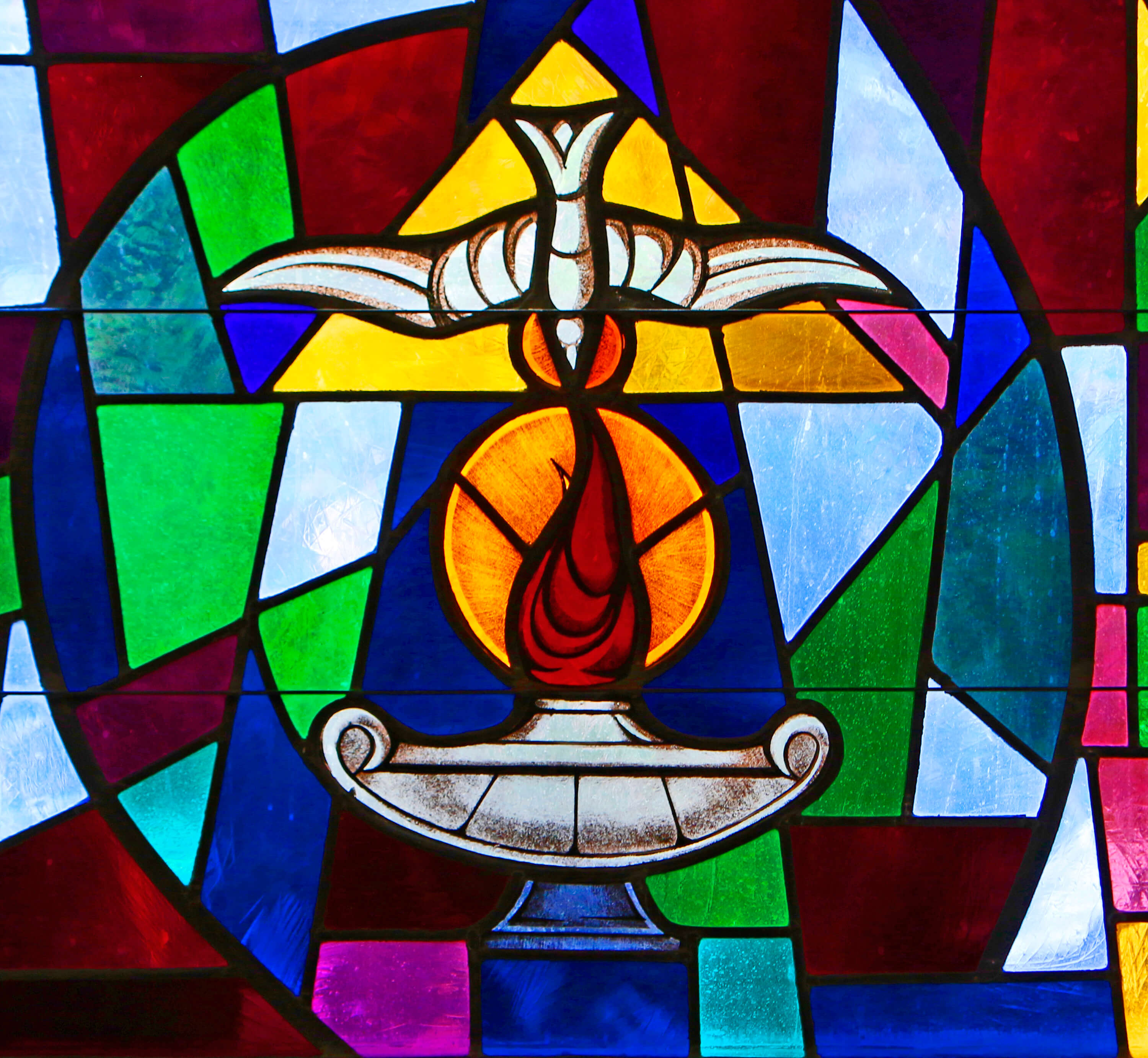
United in Christ by the Holy Spirit
“When the time for Pentecost was fulfilled, they were all in one place together. And suddenly there came from the sky a noise like a strong driving wind, and it filled the entire house in which they were. Then there appeared to them tongues as of fire, which parted and came to rest on each one of them. And they were all filled with the Holy Spirit and began to speak in different tongues, as the Spirit enabled them to proclaim. Now there were devout Jews from every nation under heaven staying in Jerusalem. At this sound, they gathered in a large crowd, but they were confused because each one heard them speaking in his own language. They were astounded, and in amazement they asked, “Are not all these people who are speaking Galileans? Then how does each of us hear them in his native language? We are Parthians, Medes and Elamites, inhabitants of Mesopotamia, Judea and Cappadocia, Pontus and Asia, Phrygia and Pamphylia, Egypt and the districts of Libya near Cyrene, as well as travelers from Rome, both Jews and converts to Judaism, Cretans and Arabs, yet we hear them speaking in our own tongues of the mighty acts of God” (Acts 2:1-11).
I grew up in a small-town parish in a town whose heyday had passed a century before and whose historic contribution to Vermont independence was already two centuries old. There was only one Catholic church, St. Francis of Assisi, which was officially founded in 1886 with the arrival of its first resident pastor. For 40 years previously, the well known missionary to the southern part of the state, Father John Daly, said Mass in shanty homes for the railroad workers. A decade later, parish priests traveled from Brattleboro, Woodstock and White River Junction to say Mass in various private homes and public buildings. The first St. Francis of Assisi Church was built in 1881; there have been two others since then.
I mention these facts because there was no competition with other Catholic churches. There were no French, Polish, Italian or any other national churches. So, the Irish, the French and the Polish prayed together, their children studied in religious education together and received the sacraments together, and they were buried in the St. Francis of Assisi cemetery
In larger cities in the Diocese, such is not the case, as is often demonstrated when churches have to merge that were founded for national reasons — that is, historically, they were a French-speaking parish or Polish or Italian etc. However, as those language groups became “Americanized,” the succeeding generations lost contact with their roots to the patria and became more mobile. If they still attended Mass, it was not for loyalty to their parish, but for the convenience of Mass times. Hence, both a decreasing population and income have necessitated the merger of parishes and the closure of some. Having been involved with merged parishes, I am shocked when a parishioner says with disdain, “I will never set foot in that French church!” or “I will never set foot in that Irish church!”
Such an attitude of isolationism is not the work of the Holy Spirit as is clearly evidenced from the Pentecost account in the Acts of the Apostles. Each language group and nation in Jerusalem that day hears the Word of God preached by Galilean apostles who can only speak those foreign languages in the power of the Holy Spirit. Verse 7 states that the foreign visitors to Jerusalem were “amazed” (Ἐξίσταντο) by the Apostles’ preaching in foreign tongues which led them to repent from their sins and be baptized into a new life in Christ. This Greek word forms the root of our English word “ecstasy,” indicating rapture, bliss or elation.
We, too, come to hear the Word of God preached by the successors of the apostles, and we can also be as ecstatic as our ancestors were, moved to repentance and new life, as long as our nationalism doesn’t interfere with our hearing and our attachment to brick and mortar (as beautiful as it may be) doesn’t interfere with the new life in Christ which that preaching offers us. It interferes when it drives us away from wherever that preaching and the celebration of the sacraments occur.
As we experience in our lifetime a decreasing population of Catholics in Vermont and a necessary merging of resources, we must not forget the joy of our ancestors who were moved to ecstasy through the power of the Holy Spirit. He descended upon the apostles at Pentecost to unite the nations, not to cause territorialism, isolationism or division among His children.
—Father Lance Harlow
—Originally published in the Summer 2019 issue of Vermont Catholic magazine.

